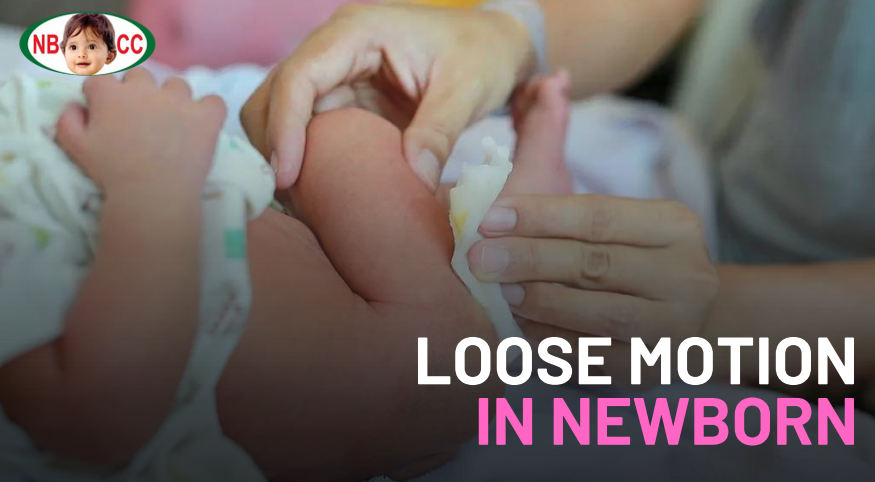Introduction:
The arrival of a newborn brings immense joy and happiness to a family. However, when a baby experiences loose motions, it can be a cause for concern and worry. Loose motion, also known as diarrhea, is a common condition in newborns and infants that can lead to dehydration and other complications if not managed promptly and effectively. In such critical cases, specialized care and support become vital for the well-being and recovery of these delicate digestive systems. This blog post aims to provide insights into loose motion in newborns, its impact on their health, and highlight the significance of New Born Care Centers (NBCCs) in providing crucial care and support to infants with critical cases of loose motion.
Section 1: Understanding Loose Motion in Newborns
1.1 Definition and Causes:
Defining loose motion in newborns and exploring its various causes, including viral or bacterial infections, dietary factors, and lactose intolerance, will help readers understand the complexity of this condition. Providing a comprehensive overview will enable parents and caregivers to identify potential triggers.
1.2 Risk Factors and Prevention:
Discussing the risk factors associated with loose motion in newborns, such as poor hygiene practices and inadequate breastfeeding techniques, will highlight the importance of prevention measures. Offering practical tips and guidance for prevention will empower parents and caregivers to safeguard their infants.
Section 2: Challenges Faced by Newborns with Loose Motion
2.1 Dehydration and Electrolyte Imbalance:
Detailing the risk of dehydration and electrolyte imbalance resulting from loose motion will emphasize the importance of timely intervention. Discussing signs and symptoms of dehydration, such as decreased urine output and dry skin, will raise awareness among parents and caregivers.
2.2 Nutritional Deficiencies:
Exploring the impact of loose motion on the absorption of nutrients and highlighting the risk of nutritional deficiencies will underscore the need for appropriate management. Describing the potential consequences, such as poor growth and compromised immune function, will underscore the critical nature of loose motion in newborns.
2.3 Impact on General Well-being:
Elaborating on the overall impact of loose motion on the baby’s well-being, including discomfort, irritability, and disrupted sleep patterns, will help readers empathize with the experiences of parents and caregivers managing this condition.
Section 3: The Role of New Born Care Centers (NBCCs) in Critical Care
3.1 Specialized Medical Expertise:
NBCCs house specialized medical professionals, including neonatologists and pediatric gastroenterologists, who possess the expertise needed to diagnose and treat loose motion in newborns. Detailing the role of these professionals will highlight the specialized care provided by NBCCs.
3.2 Fluid and Electrolyte Management:
NBCCs employ effective fluid and electrolyte management strategies to restore and maintain the balance in infants with loose motion. Explaining the importance of oral rehydration therapy and intravenous fluid administration will highlight the comprehensive care provided by NBCCs.
3.3 Nutritional Support:
NBCCs offer tailored nutritional support to infants with loose motion, ensuring adequate intake of essential nutrients while addressing any dietary restrictions or intolerances. Discussing the role of specialized formulas and breastfeeding guidance will emphasize the importance of a well-balanced diet during recovery.
3.4 Infection Control and Hygiene Practices:
NBCCs prioritize infection control measures and educate parents and caregivers on proper hygiene practices to minimize the risk of further infections and the spread of loose motion in newborns. Highlighting the importance of handwashing, sanitization, and safe feeding practices will underscore the preventive aspect of NBCC care.
3.5 Family-Centered Care and Parental Education:
NBCCs provide comprehensive family-centered care, focusing on parental education and support. Empowering parents and caregivers with knowledge about loose motion management, including home care measures and recognizing warning signs, fosters confidence and enhances the overall well-being of the baby.
Conclusion:
Loose motion in newborns poses a significant challenge for both infants and their families, requiring specialized care and support for their delicate digestive systems. New Born Care Centers (NBCCs) play a crucial role in providing comprehensive medical interventions, nutritional support, and education to infants with critical cases of loose motion. Through their specialized expertise, advanced technology, and family-centered approach, NBCCs ensure that infants receive the critical care they need to recover and thrive. By highlighting the significance of NBCCs in the management of loose motion in newborns, we can raise awareness, advocate for better resources, and offer reassurance to families facing this common yet concerning condition.

